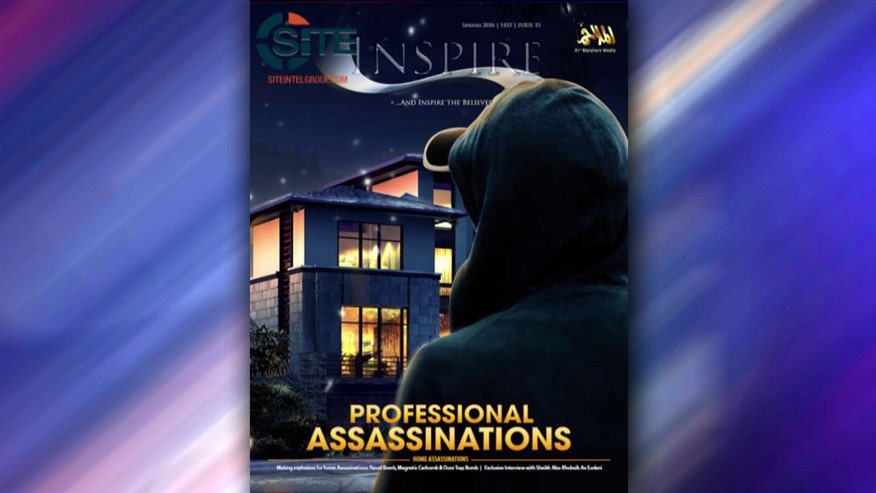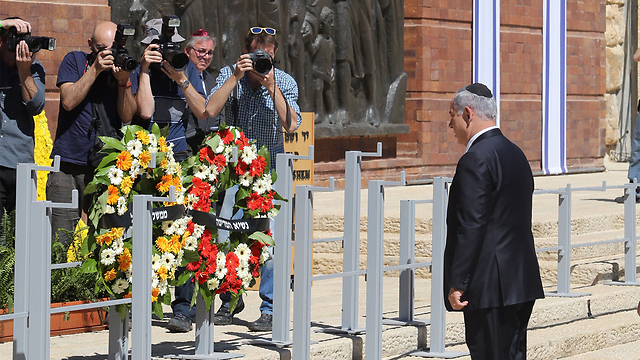The re-emergence of al Qaeda under the leadership of bin Ladin again?

He was killed in the raid in Abbottabad, well maybe not. So the hunt was on. Seems he has surfaced.
Pakistan officials say Hamza bin Laden, perhaps Osama’s most militant son, escaped the raid that killed his father. David A. Graham reports on why having this bin Laden on the loose could be dangerous. Plus, full coverage of Osama bin Laden’s death.
DailyBeast: Hamza bin Laden was supposed to be a dead man. As the Obama administration made jubilant remarks in the wake of Osama bin Laden’s death, counterrorism adviser John Brennan told reporters that the young man had been killed alongside his father.
Then the story changed: It was Khaled bin Laden, not Hamza, who was killed. That might have been the end of the story, but now reports out of Pakistan suggest the tale is even more elaborate: Not only was Hamza not killed, but he escaped in the midst of the raid.
****
(CNN)One of Osama bin Laden’s sons could be expanding his role as a terrorist spokesman, with al Qaeda this week releasing another video that features his voice.
On Monday, an audio recording surfaced in which Hamza bin Laden calls for unity among jihadi militants in Syria, who currently fight under competing banners ranging from ISIS to al Qaeda. He also calls for jihad against Israel and its American backers to “liberate” Palestine, according to a translation by the SITE Intelligence Group.It is his second such recording in less than a year, and could represent an effort by al Qaeda to capitalize on the impact of the bin Laden name.“Obviously, he has the family name,” said CNN national security analyst Peter Bergen. “He’s now playing a propaganda role, and he’s a lot younger than some of the other leaders of al Qaeda, in their 50s or their 60s.”Hamza bin Laden is believed to be in his early or mid-20s, and could represent al Qaeda’s next generation.“From a very early age, his father was kind of grooming him,” said Bergen, who just published the book “United States of Jihad.” “Hamza has been very much indoctrinated with the whole jihadi kind of message. He’s a true believer. I think that makes him a concern.”Hamza bin Laden was not at his father’s compound at the time of the raid by American special forces in 2011 — unlike one of his brothers, who was killed there. Papers found at the compound indicate that Hamza had been sent off for terrorist training.“Just a month before the raid on Osama bin Laden’s compound, we know Hamza was somewhere else in Pakistan being trained by al Qaeda leadership,” said Thomas Joscelyn, a terrorism researcher with The Long War Journal. “He was receiving high-end explosives training.”But it is not clear whether Hamza bin Laden now has an operational role in planning terrorist attacks, or whether his role is primarily focused on Qaeda’s propaganda operation.According to Joscelyn, “al Qaeda is saying, ‘This is the new generation of jihadi leadership. This is the new bin Laden, who is going to ultimately lead us into the future.”One U.S. intelligence official tells CNN that Hamza bin Laden currently has a relatively small role in the organization, but that al Qaeda could be grooming him for possible future leadership positions.“I don’t think he’s necessarily going to run al Qaeda tomorrow,” said Bergen, “but the family name, the fact that he’s a younger guy, the fact that he’s a true believer — all that suggests that he likely will play an important role in al Qaeda going forward.”While al Qaeda’s subsidiary franchises have been thriving in Yemen, Syria, and North Africa, al Qaeda’s parent organization in Pakistan has lost a number of top leaders, many of them to American strikes.Showcasing Hamza bin Laden, according to another U.S. intelligence official, “appears to be an attempt by al Qaeda to fill gaps in its ever-dwindling bench.”****
Al Qaeda magazine calls for targeting American business leaders
FNC: The latest issue of Al Qaeda’s online magazine Inspire released Saturday calls on would-be jihadis to undermine the American economy by targeting business leaders and entrepreneurs, according to analysts who monitor web chatter from the jihadist organization.
The newest edition obtained by the Middle East Media Research Institute (MEMRI) features a cover with the headline “Professional Assassinations” and the subhead “Home Assassinations,” which the depiction of a hooded killer watching an upscale home from the outside.
Additional photos include in the issue include one of Microsoft founder Bill Gates splatted in blood with a pistol nearby. The magazine is published by Al Qaeda’s main affiliate located in Yemen, Al Qaeda in the Arabian Peninsula.
MEMRI quotes Inspire’s editor, Yahya Ibrahim, as opening the issue by saying “assassination is an effective toll in warfare,” and notes that “The prophet ordered the killing of many criminal leaders using this method … And here we are, following the footsteps of the prophet on how he dealt with his enemies and friends.”
Ibrahim adds in this issue that the focus of the previous issue of Inspire was what he called “workplace” assassinations, and hopes to expand on the same topic in the current issue, which AQAP hopes will lead to training and preparing a more “professional” type of lone wolves.
“We will never put down our weapons until we fulfill what Allah wants from us. We are determined to keep fighting and striking Americans with operations by organized jihadi groups and by Lone Jihad, [and] pursuing America in its homeland — by the will of Allah,” MEMRI quotes Ibrahim as saying.
MEMRI also said an analysis of the issue “provides detailed information and instructions on preparing for and carrying out various targeted assassinations. It stresses that an assassin should possess different options to carry out an attack, which gives him or her a greater chance for success, and elevates the operation to a more ‘professional’ level.”
In addition to the main section on professional assassinations, the magazine also features a section on bomb-making and encouraging radical Islamic terrorists to emulate the Palestinian stabbings of Israelis by walking up to Americans and stabbing them to death.
AQAP was the first to use English publications to reach out to supporters in the West, with the launch in 2010 of its English-language magazine, Inspire.
The online magazine featured commentary by a radical U.S.-born cleric, Anwar al-Awlaki, who was also killed in a U.S. drone strike in Yemen in 2011.






